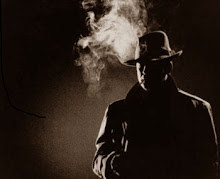Investigative interviews.
It's one of those areas that I actually quite enjoy; sitting down in front of a POI (Person of Interest), whether Witness or Suspect, and engaging with them verbally to obtain their account of events and, in some cases, obtain explanations for any discrepancies in accounts.
It's not rocket science but there is an art to it.
For the most part, I conduct interviews in regards to insurance claims investigations. However I have also interviewed witnesses in criminal defence cases and, on a number of occasions, potential suspects in workplace theft incidents.
And, I have to admit, I am entirely self-taught.
While there are a number of Investigative Interviewing courses available that I would dearly love to attend, they are somewhat pricey. It's all very well being sent on courses etc when you are employed by an agency or government department, but when it has to come out of your own pocket you really have to justify those costs. Would attending an Investigative Interviewing course translate into more work for me? No. So, for now, it stays on the wish list.
Another PI agency, who I work as a subcontractor for, phoned me up a while ago and asked me where I was taught to interview subjects. For a moment there I was sure I had done something very wrong and was about to get a chewing out, possibly losing future work from them, and cautiously answered "well, no-one taught me..." and then was surprised to be told that my interviews were amongst the best they'd ever had.
So what am I actually doing that's different from the others?
Damned if I know. I follow the principles of the PEACE interviewing framework, which can be broken down into the following stages:
P (Planning & Preparation)
E (Engage & Explain)
A (Account, Clarification & Challenge)
C (Closure)
E (Evaluation)
PEACE was initially born out of a perceived need in the UK for a more ethical and effective alternative to persuasive interviewing and has subsequently been adopted (or is still being adopted) by various police forces and governmental agencies throughout Europe, Australia, Canada, New Zealand etc.
There is also the understanding that the application of the PEACE model differs when interviewing a co-operative witness and interviewing a suspect. With a witness, the emphasis is on facilitating recollection of events whereas, with interviewing a suspect, the emphasis is on securing a confession.
Anyway, I'm not trying to write a dry academic treatise on interviewing - you can download and read this literature summary commisioned by the New Zealand Police in 2005, which predominantly features the PEACE model but also looks at a range of other techniques.
Instead, I'm interested in what tips others have; how you conduct your interviews, strategies that you find particularly effective and the like.
I'll come back to this topic again in the future.


No comments:
Post a Comment